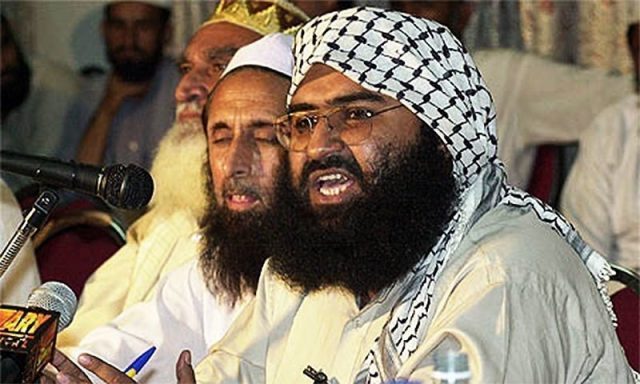News Desk |
In response to Washington’s resolve to utilize “all available avenues” to make sure that Masood Azhar, the leader of Jaish-e-Mohammad, is held accountable, China urged the United States against complicating matters as it will “do no good to peace and stability in South Asia”.
Earlier on Tuesday, international media reported that a US State Department spokesperson had confirmed that “we circulated a draft UNSC resolution with UK and French support”. The US had circulated a draft resolution to the UNSC on 27th March, urging member states to designate Masood Azhar as a terrorist, and subject him to an arms embargo, a travel ban, and an assets freeze.
Shuang maintained that China will continue its efforts of engaging in discussion and reviewing the issue of listing in a “responsible and constructive manner”, which will ensure that the issue is “properly resolved”.
The US spokesperson further added, “While we strongly prefer that UNSC designations take place through the committee process, the United States and its allies and partners, including those on the UN Security Council, will utilize all available avenues to ensure that the founder and leader of the UN-designated terrorist organization JeM is held accountable by the international community.”
While addressing a regular press briefing on Wednesday, China’s Foreign Ministry Spokesperson Geng Shuang responded to the developments, saying, “Last Friday, members of the UN Security Council exchanged views on the draft resolution circulated by the US. The majority of them agreed that the listing issue should be resolved through dialogue and consultation under the 1267 Committee instead of by pushing for a vote on the draft resolution.”
Read more: Blacklisting Masood Azhar: China Urges US to refrain from forceful actions
Shuang maintained that China has been engaged in consultation with all parties, and these consultations have achieved “positive results”, which have also been shared with the US. He added, “However, it still prompted the draft resolution to be adopted at the Security Council, which makes no sense at all.” Shuang warned Washington against setting a “bad precedent” with measures that are against the customs and regulations of the United Nations Security Council.
He said, “What the US did has set a bad precedent as it is not in line with the Security Council rules and customary practices. It will only complicate matters and will do no good to peace and stability in South Asia.”
Shuang maintained that China will continue its efforts of engaging in discussion and reviewing the issue of listing in a “responsible and constructive manner”, which will ensure that the issue is “properly resolved”.
India provided Pakistan with a dossier which was returned earlier this month as it also failed to provide any conclusive evidence that would establish any Pakistani links with the Pulwama attack.
In response to a question that “no solid proof has come out about the involvement of Jaish-e-Mohammad in Pulwama attack”, Shuang maintained that “China has already made clear its attitude on the attack that recently took place in Indian-controlled Kashmir.” He stressed that China hopes to see “peace and stability in South Asia”, and is eager to see India and Pakistan resolve their differences through “dialogue and consultation”.
Earlier on Monday, Shuang had warned that Washington’s decision to directly approach the UNSC to designated Masood Azhar as a terrorist was a blow to China’s attempts to resolve the issue through constructive measures. He noted that China had achieved “positive progress” on this issue, while the stance adopted by Washington is simply not favorable to the peace and stability of South Asia.
Shuang observed that the majority of UNSC members agreed that the issue of terrorist designations should be dealt through the relevant 1267 sanctions committee, instead of pushing a draft resolution at the UNSC. He maintained that China is adamant to ensure that the issue is dealt through dialogue and consultation.
Read more: China blocks UN bid to sanction Masood Azhar, again
Earlier in February, in the wake of the Pulwama attack that claimed the lives of 44 Indian paramilitary soldiers in Indian-occupied Kashmir, New Delhi resorted to blaming Masood Azhar, the leader of Jaish-e-Mohammad, without any conclusive or solid evidence. Islamabad rejected these claims and maintained that there was no Pakistani involvement in the attack. India provided Pakistan with a dossier which was returned earlier this month as it also failed to provide any conclusive evidence that would establish any Pakistani links with the Pulwama attack.
Mina Jahangir with additional input by News Desk.













